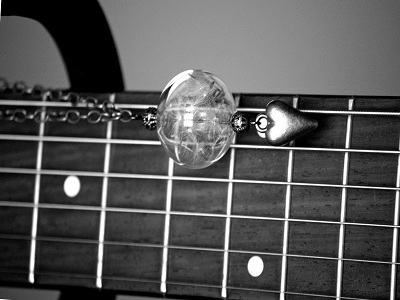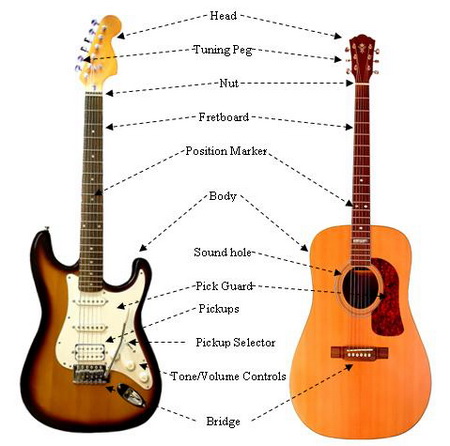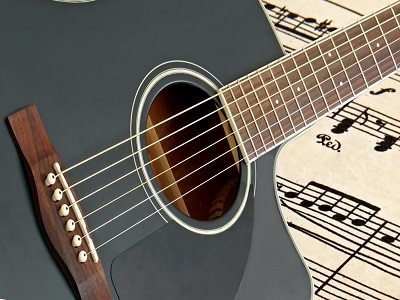Tips to Developing Better Aural Skills
 Training your ear is one of the best things you can do for yourself as a guitar player. Not only will it allow you to learn the songs that you want, but it will also help you to become a better player.
Training your ear is one of the best things you can do for yourself as a guitar player. Not only will it allow you to learn the songs that you want, but it will also help you to become a better player.
The more you learn to recognize notes, the more you can come to understand them –why they work together, how they relate, what doesn’t work, and why.
In this article, we will give some tips on how you can start training your ear.
If You Don’t Sing, You Are Going to Have to Start
Singing is one of the best tools that you will ever possess in ear training. Your voice is free; make the best use of it by putting it to use. When you play over your scales (which you should do almost every practice), sing along.
This will help you to recognize notes by ear. Start off with an easy scale. Major scales are the most basic, so they are usually the best place to start. Sing the name of each note as you play it. Hold the note and allow your voice to reach it.
Once you have reached it, hold it for a few seconds longer. This little extra bit will help you to develop the ability to maintain notes with your voice. You will need it, as singing notes will be the best way to recognize them in the car or anywhere that is away from your guitar.
Don’t Worry About the Tone or the Limitations of Your Vocal Chords
Don’t worry if you can’t hit the exact octave of the note you are playing within the scale. You’re a guitarist –it isn’t your job to hit every note in every pitch. What you want is to reach the note itself. A C4 and a C5 are both still C notes. This means that if you can hit one and not the other, you will still recognize the notes as they have the same properties, both being C notes.
Once you feel comfortable will your ability to hit notes, try singing the note of the scale and then playing that same note of the scale. This will immediately tell you if your ear has started to develop. If you can hit four out of ten, you are doing okay. If you made eight out of ten of the notes, you are doing superb. Very few people can make ten out of ten, so don’t beat yourself up over it.
After you are able to make seven out of ten on average, try picking apart pieces of music. Start off simple. If you need to, try singing the notes you hear to try and name them. If you come to some chords, don’t try and pick each note out at first; find the overall property. This will tell you what key the chord is in. After that, the basics are all in the triad.
In the end, ear training for guitar players is all about practice. Some guitarists’ ears take longer to develop than others. This is due to ear sensitivity and nothing more. Make ear training a part of every day’s practice. You get out what you put in, so be sure to work hard. Good luck!
The Best Tool For Learning to Play the Guitar
For the ultimate step-by-step guitar system, we highly recommend Gibon’s Learn & Master Guitar course. This award winning DVD course is currently on a 3-day sale and you get to save $100 off the regular price today!
Click here to learn more details and get the course before this promotion ends…







Leave A Comment